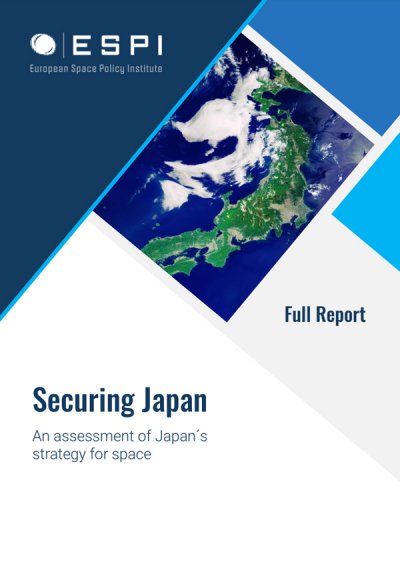For almost five decades, Japan has been the undiscussed space leader in Asia. The development of launchers and state-of-the-art satellite systems, ground-breaking exploration missions and its status as the only Asian country participating in the International Space Station (ISS) venture are all pieces of evidence for Japan’s prowess in the space domain. However, due to historical factors, the Japanese space programme had to follow an almost exclusively science and technology-oriented space policy often fuelling the impression that its efforts were guided by “anything like a coherent national strategy”. Adding to these perceptions, since the late 1990s, the country has been experiencing a prolonged “space crisis” with regard to strategic direction, management, and level of involvement in space activities. What is more, the growing attention paid to the concomitant ascendancy of China contributed to a ubiquitous global perception of “a wave of Japan passing”, which was duly reflected also in the space arena.
While the impressive achievements of China have certainly contributed to diverting international attention from Japan’s ambitions in space, this does not mean that Japan is no longer a protagonist of global space activities. Far from it. Since the enactment of the Basic Space Law in 2008, Japan’s space programme has been quietly – yet firmly – undergoing a profound transformation aimed at conferring the country with the tools to reinvigorate its strength, prestige and autonomy in the international space arena. While the process is still ongoing, the key pillars of Japan’s grand strategy for space have already emerged in many key policy documents.
Most commentators have rightly emphasized the increased militarization (or more properly normalisation) of the programme, yet failed to connect this transition with other substantive goals in the country’s strategic profile. In fact, a careful examination of Tokyo’s strategic posture would reveal that the scope of this transformation is in fact much broader and far-reaching. Indeed, the Japanese space programme is an increasingly complex and multi-layered endeavour that is driven by a wide range of security, socio- economic and political considerations.
Tacking stock of the release of a new Basic Space Plan in June 2020, this report provides an in-depth investigation of the degree and nature of change in Japanese space strategy, shedding lights on the catalysts of this change and suggesting where Japan space efforts might be heading. To fulfil these objectives, this study more specifically offers:
- A detailed overview of the Japanese space programme, including:
- the organizational framework
- the policy framework
- technical capabilities and programmes
- An analysis of the evolution of Japan’s space strategy and the country’s current approach to:
- Civil space efforts
- Commercial space efforts
- Security efforts, in the dimensions of security in space and outer space for security
- An overall assessment of the catalysts as well as tools/mechanisms to achieve objectives
In doing so, the report takes into account and reflect on the possible long-term implications of this transformation and future positioning of Japan in the international space arena.





